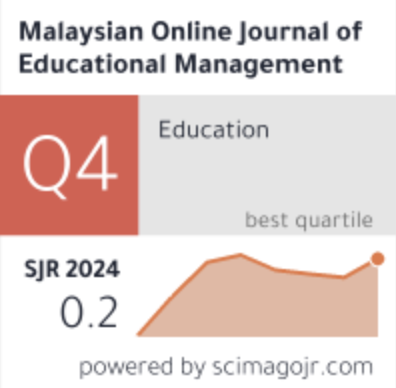ENHANCING UNIVERSITY PERFORMANCE THROUGH THE LENS OF POTENTIAL FACTORS FOR INNOVATION CAPABILITY AMONG ACADEMIC STAFF IN MALAYSIAN UNIVERSITIES: A TOTAL QUALITY MANAGEMENT - BASED INVESTIGATION
DOI:
https://doi.org/10.22452/mojem.vol12no2.4Keywords:
Total Quality Management, University Performance, Innovation, Partial Least SquareAbstract
This study aims to investigate the potential factors within Total Quality Management (TQM) that can enhance innovation capabilities among academicians in Malaysian universities. The adoption of TQM principles is pivotal for the development of university performance. Structural Equation Modelling (SEM) was employed to analyse the underlying relationships among latent constructs, comprising of leadership management commitment, people management, stakeholder focus, student focus, recognition and rewards, vision, innovation capabilities, and university performance, as proposed in the model. A total of eight hypotheses were formulated to examine these latent relationships. The Partial Least Squares Structural Equation Modelling (PLS-SEM) technique was utilized to empirically assess the model. Data was gathered through a survey conducted via convenience sampling in both private and public universities in Malaysia, resulting in 123 usable questionnaires. The findings indicate that three out of the seven hypothesized relationships between TQM enablers and innovation capabilities are statistically significant, as evidenced by t-values exceeding 1.96 with two-tailed test using 10,000 bootstrapped samples. These significant relationships influence innovation capabilities and subsequently impact university performance. In contrast, insignificant findings suggest that academic staff working independently minimizes the influence of people management, with limited impact from quality improvement, student focus, and vision dimensions.









